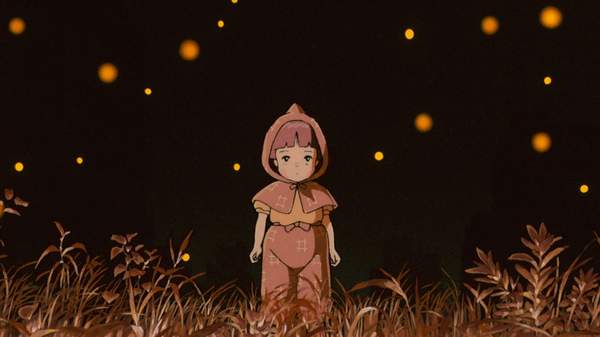Overview
All aboard the Catbus to a world of whimsy and imagination: the best of Studio Ghibli is coming to a theatre near you. Featuring recent films The Wind Rises and The Tale of Princess Kaguya, alongside adored classics My Neighbour Totoro and Grave of the Fireflies, the special two-week season, which also includes a pair of behind-the-scenes documentaries, will play on selected screens around the country, highlighting the legacy of Japan's most famous animation house, one that has been working its magic on audiences for near on 30 years.
In celebration of the studio's wonderful stable of work, here's five underappreciated Ghibli films you owe it to yourself to see. If you love Totoro and Spirited Away, then these should be right up your alley.
NAUSICAA OF THE VALLEY OF THE WINDS (1985)
Although technically made before the studio's foundation, Nausicaa is still generally considered the beginning of the Ghibli cannon. Directed by Hayao Miyazaki, the film takes place in a post-apocalyptic world in which a young sky-sailing princess must help maintain peace between neighbouring kingdoms as well as the fearsome behemoths that roam the toxic wastes. While the plotting is a little rougher than many of the studio's later works, all of Miyazaki's storytelling signatures are here, from his self-reliant female protagonist to his strong environmental and anti-war themes, as well as his life-long fascination with flight.
GRAVE OF THE FIREFLIES (1988)
Released the same year as My Neighbour Totoro, Isao Takahata's first film under the Ghibli banner is a significant departure from the more fanciful films of his co-founder Miyazaki. Adapted from the novel by Akiyuki Nosaka, the film follows two siblings, 14-year-old Seita and his infant sister Setsuko, as they struggle to survive during the last months of the Second World War. The grim subject matter is juxtaposed with moments of incredible animated beauty, both of which are guaranteed to have you sobbing buckets by the time the movie ends. Grave of the Fireflies remains one of the best anti-war films ever made, and perhaps the most emotionally affecting entry in the studio's body of work.
PORCO ROSSO (1992)
Another anti-war film, but with a very different tone, Porco Rosso recounts the exploits of a WWI ace fighter pilot now making his living as a bounty hunter in the Adriatic sea. The wrinkle? Thanks to a mysterious (and never fully explained) curse, Porco has been transformed into a talking, anthropomorphic pig. Originally written as an in-flight short film for Japan Airlines, Miyazaki was inspired by the breakout of the war in Yugoslavia to expand his script into a feature. The result is a mix of swashbuckling comic adventure and critical commentary on the looming threat of fascism. It's an odd blend to be sure, but the final product works like a charm.
PRINCESS MONONOKE (1997)
When Harvey Weinstein considered editing Princess Mononoke for US audiences, Ghibli producers reportedly sent the American studio boss a katana sword in the mail along with a two-word note: "no cuts". A historical epic infused with breathtaking images from Japanese mythology, this tale of demons, spirits, heroes and warrior princesses once again sees Miyazaki challenging traditional gender norms and pushing a strong environmental message, while also adding another string to his bow with some stirring samurai action. One pertinent side note: the director announced back in '97 that Mononoke would be his final film. He ended up going back on that just four years later with Spirited Away, the studio's most beloved and successful work. In other words, take his recent retirement claims with a healthy dose of salt.
FROM UP ON POPPY HILL (2011)
Still, if Miyazaki Sr. does close up shop, it's comforting to know the family business is in capable hands. Hayao's son Goro began his Ghibli career on ignominious terms, with the fairly awful Ursula Le Guin adaptation Tales from Earthsea. But his follow-up, the bittersweet coming-of-age story From up on Poppy Hill, demonstrates a great deal more promise. Set in a small coastal town during the early 1960s, Poppy Hill tells the story of Umi, who each day raises signal flags for her father, lost at sea during the Korean War. The film's loving recreation of period Japan, along with its slice-of-life plotting, makes it seem closer to Takahata's films than the fantasies of Goro's father. Even so, it's nice to think that the apple hasn't fallen too far from the tree.
